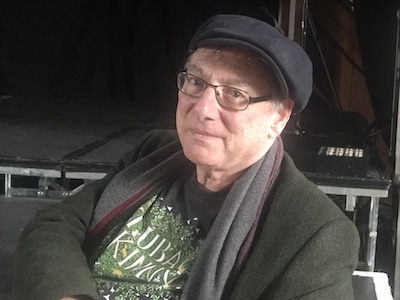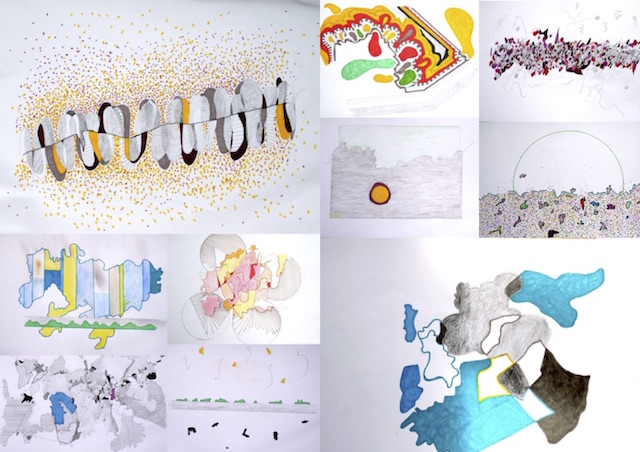Date/Time
Sunday 23 October 2022
4:00 pm - 5:00 pm
Ashburton Arts Centre
Categories
Classical
Book here now: £10 or £8 or £5 – Or you can book for the whole series, 5 for the price of three.*
This is Book Four of four, each of which is being performed on Sunday afternoons in October 2022, followed by a fifth on Sun 30 October, where, Sam writes: “The last concert, however, will be improvised, not composed pieces. I’ll be relating my playing to a particular traditional melody, but I’ll go on from there into a journey of musical exploration.”
Tickets available in advance for individual concerts or for all FIVE (buy three, get two free!)
The concerts will also be streamed online, live on Zoom and YouTube, and available for watching later. Email boxoffice@ashburtonarts.org.uk for more about this. If you email on the day, after mid day or so, you’ll get an euto reply with the links. The exact time is hard to predict – if you email anytime before this is done, you’ll be sent the information sometime on the day before the concert.
Composer and performer, Sam Richards writes:
“Some months ago I experimented with cutting up a song from English oral tradition. It was Seventeen Come Sunday – a song which the early folksong collectors and composers loved. I divided it into fragments (phrases), composed chords and more little phrases that seemed to “go with” the melody, made a few inversions and so on. All these factors mostly preserved the Dorian mode of the original. It was for piano and lasted only a few minutes. I played it to an (adult) composition student of mine who liked it too. I liked what I had written so I tried the same kind of thing again, this time with a Spanish melody – thinking of this same student who, as it happens, has a Spanish background. Same result. We both liked it.
“To cut a long story short I got into the idea big time, and ended up with 48 pieces, each derived from a melody from oral tradition and using many countries – many African countries, China, Japan, all over Europe, South America, USA… and so on. The 48 pieces are divided into four books of 12 each and are called “Echoes and Traces” and are like a Cook’s tour of musical modes, idioms and fragments from around the world. I’ve also added some drawings…
“I’ve written a lot of piano music in the last few years – more than usual. (Lockdown…) But with these pieces I really have the strong urge to play them to people. A major problem is that it would take a little over four hours to play them all. I approached Ashburton Arts Centre, and between us we hatched the plan of playing one book (that’s one hour) every Sunday afternoon in October at 4 pm – four weekly concerts beginning on 2 October 2022. This is the backstory…”
Sam writes more:
“An interesting problem. What to call these new compositions of mine that I’ll be playing on every Sunday afternoon in October.
Take a melody from an oral tradition from anywhere in the world. Interrogate it. Maybe break down it into little motifs or cells of notes. Look at the lengths of its phrases, its typical resonances, scales or modes, its rhythmic structure, its pitch resonances in terms of the dominance (or lack of) of notes. Perhaps turn it upside down, or merely (if it has harmony implied) re-harmonize it or cast it into other modes. To the material in this matrix you can apply any techniques you like to birth your new pieces of music: versions of serialism (inversions, retrogrades), minimalism, repetition, chance procedures, ambience…In some pieces invite a little improvisation, or create flexible scores whereby the pianist assembles fragments on the spot…You get the idea…A multivalent adventure in composing new pieces.
“Echoes and Traces” consists of 56 short compositions each written with this approach, and using melodies from nearly 50 countries around the world. The overall title implies that there are slight echoes, or maybe mere traces, of the source material, but they are in no way mere arrangements and nor do I try to steal (or appropriate) the thunder of the world’s wonderful melodic traditions. By applying and adapting literate techniques from my own background I introduce the literate to the oral and, taken as a 56-piece whole – hopefully create a procession of regional references framed by what I can bring to them as a composer.
Perhaps that sounds convoluted. I can assure people it’s not – not when you get to listening to the music. The interesting problem, however, is what to call it. Is there an adjective that I could commandeer? “Global” music is problematic given that “globalisation” can be a controversial concept in the world of global economics. I’m tempted by the old socialist idea of “internationalism” – but I have very mixed feelings about nation states as such. I’m afraid “world music”, since its inception in the 1980s, sees my blood boil. And in any case, “world music” refers specifically to traditional music from “other” countries. My music is nothing like that.
You can’t use words like “universal”, “multi-(anything)”, “transnational” or whatnot. Such words are compromised, pretentious, quaint – or all three. I quite like “worldwide music” which at least sidesteps the horrors of “world music” but, in the final analysis won’t do. (It has to be accurate…) I’m also fond of “cross-border music” which has the right political subtext, but alas would be a bit of an illusion on my part and is too clunky. After all, it’s my music, my usage of traditional melodies, and the likelihood is that Berbers, Aboriginal Australians of the Torres Straight, or even blues singers of the Deep South would, at best, regard my music as (shall we say) somewhat unlike what they’re used to.
I have to own it. My music is created by a (semi) trained white European who, for as long as he can remember, has loved the oral traditions of the world but (apart from inheriting some nice songs from his Mum) isn’t really part of any. My concerns – idiomatically, politically and aesthetically – reflect all that.
The correct term would be “meta music”. I select from an online definition: “Metamusic is music about music: songs that reference themselves, the singer, other songs, other singers, musical instruments, the process of writing or recording a song, the music industry, or anything else that is related to music.” Eddie Prevost, the percussionist with AMM, used this term to describe AMMmusic.I was always impressed with this usage and happily embrace it for myself. However, I do recognise a drawback: can you imagine going into a record shop (insofar as such things exist any more) and looking for the meta music section? Still, as I say, given that there are hardly any record shops now maybe it doesn’t matter.
Come to my concerts and put all the above in a box marked “interesting”…or whatever you feel it is.”
* See
Access, Tickets & Finding Us for more about why there are three ticket prices, plus other useful info about coming to events at Ashburton Arts Centre.

